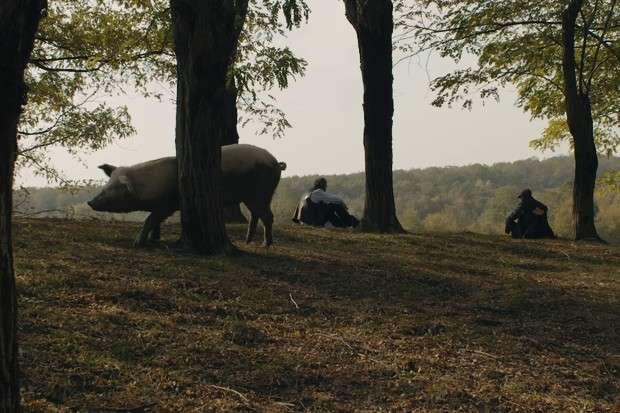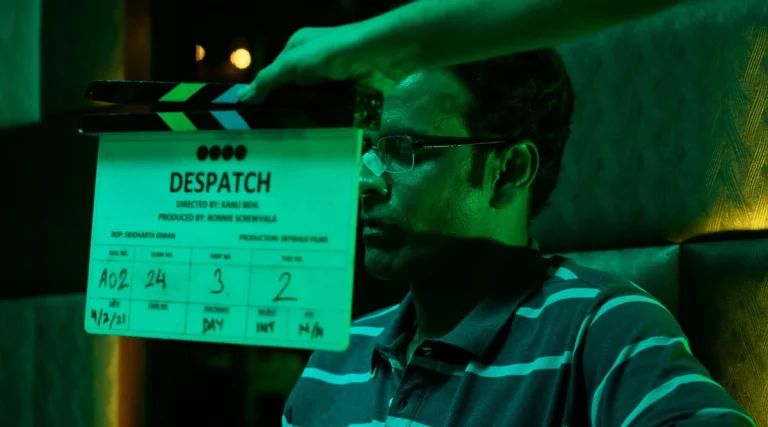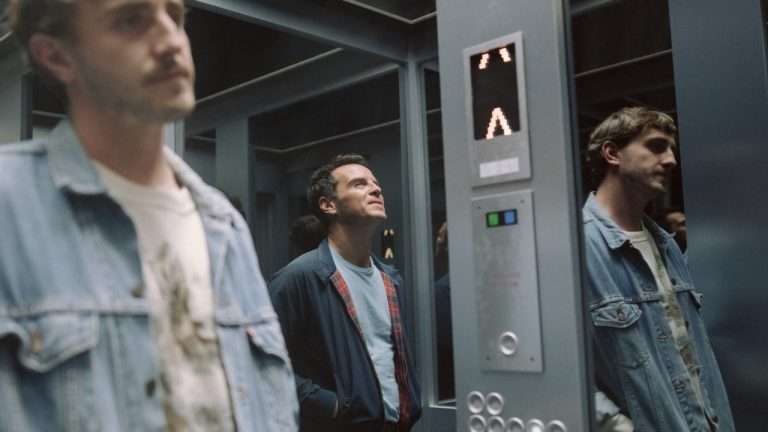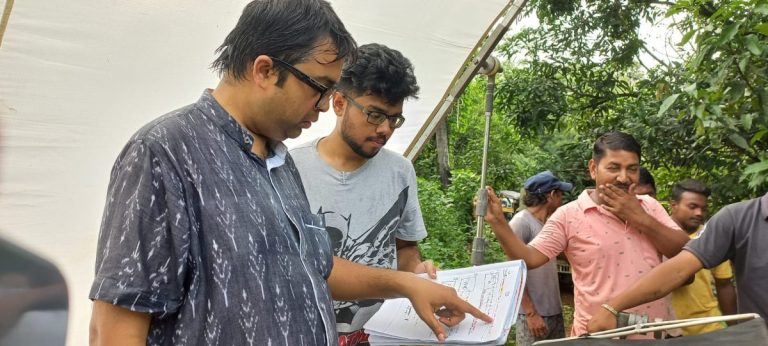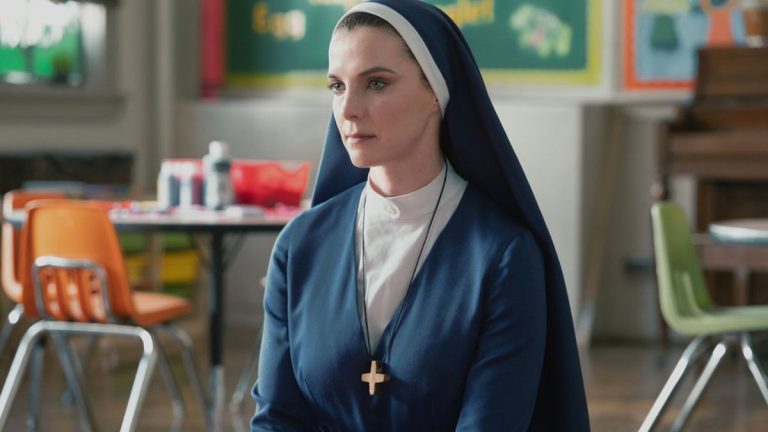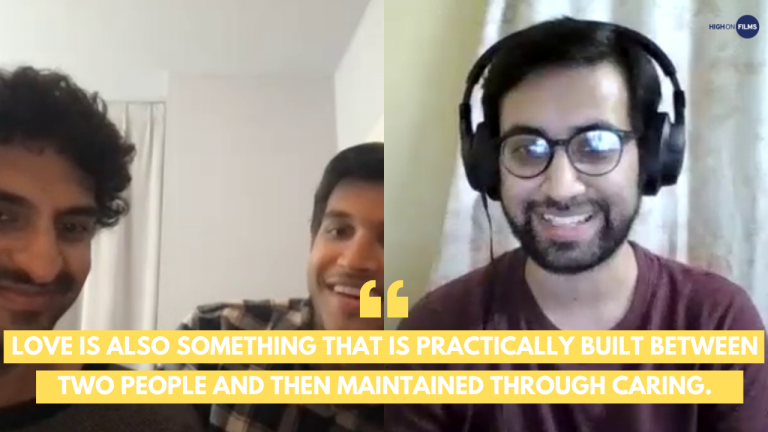There aren’t many YA movies that make you feel like a squishy, warm hug when you feel low or a cup of steaming chai on a rainy evening. “Girls Will Be Girls” (2024), directed by Shuchi Talati, is an exception. It is laced with nostalgia and the feeling of ‘been there, done that,’ which leaves you scratching your head and fumbling to find the right words about teenage crushes. It follows Mira (played by Preeti Panigrahi), the Head Prefect of a school, who falls for the new boy in her class, Sri (Kesav Binoy Kiron). However, Mira soon finds herself cross with her protective mother, Anila (Kani Kusruti), who she feels is cozying up with her boyfriend. Catch this gem of a movie as soon as it lands in a theatre near you for an unforgettable trip back to your teenage years!
We at High on Films caught up with Shuchi Talati, the director and writer of the movie. We discussed all things YA movies, the characters of Preeti and Sri, teenage romances, and more in a fun, candid interview before the film opened for the US audience. You can read it below:
Ahendrila: I want to begin by telling you that Girls Will Be Girls is a fantastic film. It transported me back to my school days. I studied in a Catholic co-ed missionary school, and it felt like I had gone back in time. So congratulations! I quickly want to begin by asking why you picked a convent school as a setting for your story.
Shuchi Talati: It’s actually not a convent school. It is in the pledge, like a Hindu-inflected school, but I forget what it’s called. I think it’s called Parampara High Peaks Academy, and it is the name of the school and the pledge that they take. However, the thing is that the convent schools, or whether they were Hindu schools or some more or less secular schools, they were all very similar in that they policed us in exactly the same way, where we had to hide relationships, where our skirt lengths were monitored, and if we were pulled up for talking too much to boys. So, yeah, but anyway, I don’t know if that answers your question.
Ahendrila: Right, that’s okay. So, the film also poses this critical but complex relationship between Meera and her mother, which takes center stage. Was it challenging to translate this mother-daughter equation on the screen?
Shuchi Talati: Yeah, I think it was quite hard because the biggest challenge to me was not trying to simplify the motivations of the characters. So this mother is, she really loves her daughter. She’s trying to protect her. She’s trying to give her freedoms that she didn’t have by allowing her to meet her boyfriend. At the same time, she’s feeling envious of the opportunities that her daughter has, the youth that she missed out on. And she’s enjoying this boy’s attention. And I didn’t really want to simplify any of those things.
So the challenge was to try and keep all these feelings of life and tell the film from Meera’s perspective, where there are moments that she really hates her mom, the moments that she cannot stand her. And yet none of this is spoken; this is all in the subtext. This is all in the looks. This is all in who doesn’t get their cup of chai (laughs). It was really challenging to make sure that all of this complexity was communicated in the language without over-the-top dialogue or big confrontation scenes. I also wanted to test in the edit that the audience was really going along on this journey with Meera. They were not ahead of her. They were not behind her, and they don’t change their point of view about other characters until she does. So that was a real challenge.
Ahendrila: And so what would you say goes into making a character as universal as Meera or Sree at some point of time in the film as well?
Shuchi Talati: I don’t know what goes into it. I think I really try to imagine these characters with as much specificity as I can, and often the characters that I write are like…I begin with like an amalgam of maybe two or three people that I actually know or I’ve seen from a distance, so that they I can, like, remember. Like, if I if I cannot imagine what this character would do, I’d be like, what might that person do? What might that person do? And, like, that’s where it starts. And then at some point they coalesce and become their own person; they are not like the people, the original inspirations. They’re just like their own thing.
But, I think that helps me to have some real people as references, whether even they’re on TV or I knew them from a distance. It helps me imagine their psyche, and I think it helps me really remember that these are real people. So I shouldn’t they shouldn’t do something because the story requires it. It should really feel true, if like this person would never do that – if Meera would never yell at her mom in a certain way, even if the story requires that, I have to find another way to do it, you know.
Ahendrila: Because my next question would be as adults now, when we think back upon our teenage days, we realize that love at that point of time or whatever – attraction – at that point of time was innocent as well as very hormone driven, so I wanted to understand how you navigated around this challenge of portraying the same? And I’ll tell you where I come from. A lot of content that we see in the young adult content space right now is more focused on the sex education and the hormone-driven bit of it and less on the innocence bit of it. But in Girls Will Be Girls, there are a few moments where their fingers are brushing against each other and there’s a look that they exchange and then they’re just staying back on the terrace, right? So how did you how did you navigate that?
Shuchi Talati: Yeah, I mean, for me, it was really important to capture this feeling of like love, not just like, yes, hormones and lust and that is part of why you become so quickly infatuated in this way that her mother dismissively calls “puppy love,” right? And for me, I think she’s that sort of character, the Head Prefect. She is in charge of enforcing the school rules, so there had to be some true, genuine feeling for her to take the risks that she does. So that was really important to me.
Second, like I also wanted his character to be real. I didn’t want him to be some kind of a bad boy who’s just looking for sex or physical intimacy, or like you see in many stories about young women coming of age that the guys are not good at sex. I just wanted like this sort of person who’s like…nice.
He’s opening up new worlds for Mira in a way and showing her a world beyond this somewhat parochial, very rule-oriented school because he has had the privileges of living abroad and going to other schools. So I wanted him to also have a genuine sweetness and to capture all the awkwardness and all the discomfort and all the high emotion of, you know, noticing that this boy seen you looking at him. And then you’re like, “Oh, my God!”. You get so embarrassed or things like how to navigate a first touch and a first kiss.
Ahendrila: To add to that, actually, there’s this particular moment where both of them trying to pin one poster on a on a board. I was like, wow, these things somehow feel so relatable. Like you’ve been there sometime in the past and now it all feels so cheesy. But, in that moment, to a teen, it feels such a nice little thing to happen to you.
Shuchi Talati: (laughs) My DP calls it – or maybe it’s my husband. They both made fun of me for making the nerdiest flirtation scene.
Ahendrila: Like I again mentioned, there are only a handful of young adult films and projects that come out of India right now. Considering Girls Will Be Girls have had such a warm reception since the beginning of 2024, right from the Sundance Film Festival, are you hopeful somewhere that maybe this will now open up new avenues for seasoned filmmakers or new filmmakers to focus more on the young adult audience?
Shuchi Talati: I really hope so. I think it’s an audience that is enthusiastic and hungry to see them to see themselves reflected on screen. Like whenever my film plays for a young South Asian audience, it is my favorite thing because it’s like everyone says, “Oh, my God, I feel like this was my high school diary.” and “I’ve never felt so seen in my life!” or “I had a teacher just like that” or whatever, and it’s like we haven’t had the opportunity to see ourselves reflected on screen in this way. So I think there’s a real hunger and excitement there, and I do hope that people will give the audience what they deserve, which is stories about themselves.
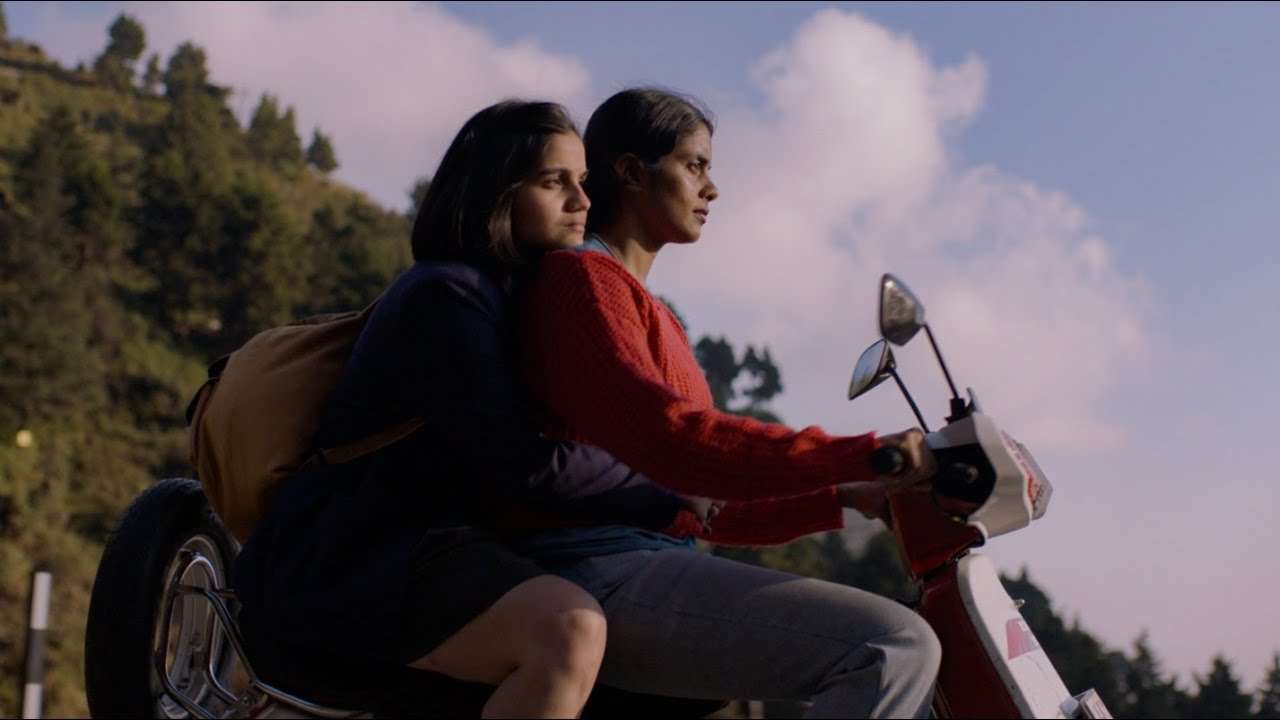
Ahendrila: Can you can you tell me what was your key point was when you were working with this film? As in, what was that one moment in the film where you were like, “Ok, this is what I wanted to achieve with this movie, and I think I’ve done it.”
Shuchi Talati: There are two points that are coming to me. There is one scene in the film, which is I jokingly call the ‘sexy studying’ scene. (laughs) It’s just this moment where these two kids are studying, but they’re also flirting and making out. When we shot that scene, it was so fun for all of us because whenever we shot intimacy, we had a very close and small set. So, it always felt more fun without all the machinery of filmmaking, which is all kept a little bit at a distance, and the actors were having such a nice time. I could feel the performances were so real that it was just like…I looked at my DP and we are like, “Ok, we’re making the film.”
Then the second moment was when we shot the last scene of the film, which we shot later in the schedule, and I don’t want to give anything away, but that moment was written down but like all the emotion that the characters experienced in that scene was a surprise. It was like cinema magic. It happened in the moment and we captured it, and that was so gratifying.
Ahendrila: Oh, perfect! So have you had ‘inspirations’ to fall back upon when you were making Girls Will Be Girls?
Shuchi Talati: You know, I probably have a lot of inspirations. I’m a huge reader, so I have a lot of like literary inspirations. I have filmmakers that I really love. But when I’m writing, I actually don’t what I try not to watch what I’m writing. It somehow makes me feel like I cannot hear my own thoughts, and that is not to say that I’m some kind of pure creator.
We are all informed for all this by all the cultural things that we consume and we read. But what I’m saying is that I cannot pinpoint a single thing. But there are films that I feel kinship to. Say Celine Sciamma and Maren Ade, and then there’s Eliza Hittman, who made this amazing film, Never Rarely Sometimes Always. They’re filmmakers I feel a kinship to, and when I watch their work, I’m like, I want to try and do what they are doing, but I don’t really go back and refer to that when I’m making my own work.
Ahendrila: So we’ll come to the last question. Since we are called High On Films, we always ask our guests what, according to them, were like two-three films ( it’s great if you can tell me five) where you thought cinema reached a high, say films that just did it for you.
Shuchi Talati: Yeah, I can totally do this. When I was in college in Bombay, I watched Robert Altman’s 3 Women, which has stars, a very young Shelley Duvall and Sissy Spacek, and that film is so incredible! I thought at the end of it (I really remember thinking) that I don’t know if I’ve breathed throughout that whole film. I just was so engrossed!
The second film is Portrait of a Lady on Fire by Celine Sciamma, a film that is so strange in that it doesn’t have a traditional conflict or anything, but you’re so deeply invested in the characters. They feel so flesh and blood and it’s so beautiful, and then it has these like sublime moments where there’s like a group of women singing like acapella around a fire, and you really feel like cinema has reached some kind of height.
The third film that is coming to my mind is Toni Erdmann by Maren Ade, which stars Sandra Huller, who is in Anatomy of a Fall and Zone of Interest. This three-hour film is so incredible and real, but also dark and funny. It also has a scene where there is unexpected, non-sexual nudity in a very odd setting and another character in a furry costume, and it is so remarkable. I just wanted to bow down and be like, “This is cinema. Maybe one day I will make something that is 20 percent of this.”




